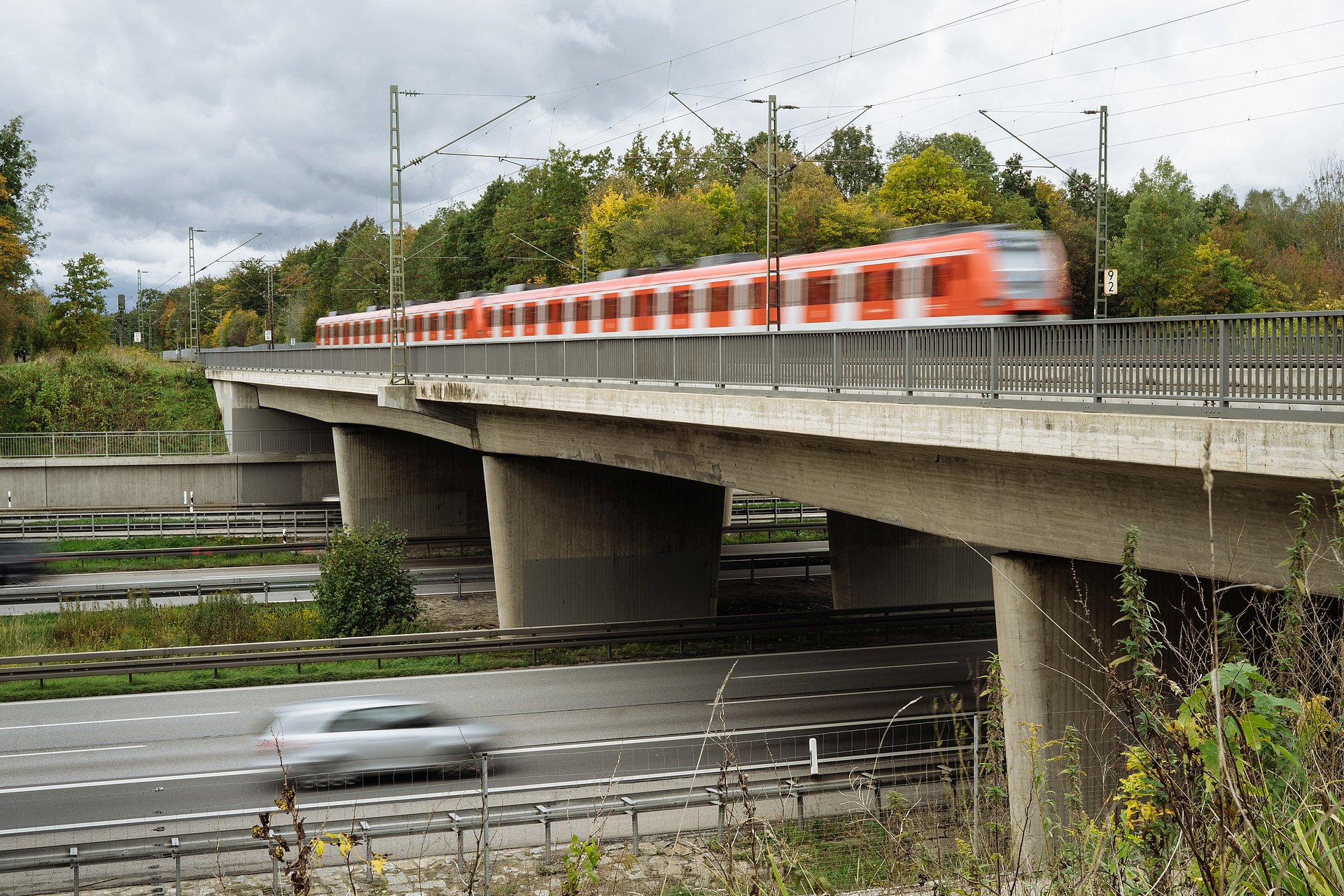Results of Munich mobility study on Germany's 49 Euro Ticket
"Deutschlandticket" hardly reduces use of cars

Data on the "Deutschlandticket", a standardized, Germany-wide public transportation ticket introduced in May 2023, was collected in surveys and captured via smartphone app. The data show that the Deutschlandticket had particularly little impact on the use of automobiles among people who already subscribed to public transportation services before acquiring the new Ticket. This group only reduced its automobile use by approximately 7 percent. Among all those Deutschlandticket holders covered by the study, the share of public transportation in the respective mix of transportation modes used rose on the order of 5 to 7 percentage points.
Dr. Allister Loder, lead author of the study, regards the marketing success of the Deutschlandticket at 49 euros per month positively: "Initial findings indicate success in improving the attractiveness of public transportation in Germany and in initiating steps towards a more sustainable mobility system," says Loder. "What is urgently needed now however is the comprehensive expansion of the public transportation service spectrum so that even more people can actually make viable use of the Deutschlandticket."
Final assessment of the Deutschlandticket still pending
The researchers point out that a final assessment of the Deutschlandticket program, initially planned to last until 2025, is not possible at this point in time. In particular, they add, it will be necessary to calculate overall results in terms of the cost to taxpayers for subsidizing the 49 euro price and the subsequent cost savings resulting from CO2 reductions, improved quality of life – especially in cities – and other possible positive societal impacts.
The granular detail of the data on movement and transportation use is a particularly important aspect of the Mobilität.Leben project. This precision makes it possible to characterize and analyze the mutual interactions between price changes and mobility demand at an almost unprecedented level of resolution. A smartphone app evaluated data on 506 Deutschlandticket users on a total of 18,222 user-days. 991 persons participated in each of two additional online surveys.
Allister Loder, Fabienne Cantner, Victoria Dahmen, Klaus Bogenberger: Germany’s Newest Fare: The Deutschlandticket – First Insights on Funding and Travel Behavior. Paper submitted for presentation at the 103rd Annual Meeting Transportation Research Board, Washington D.C., January 2024 https://mediatum.ub.tum.de/download/1720096/1720096.pdf
- Project web page
- The TUM Think Tank at the TUM Munich School of Politics and Public Policy (HfP) https://www.hfp.tum.de/hfp/tum-think-tank/ brings together science, civil society and politics in order to jointly develop potential solutions and instruments for the urgent challenges of our time. Groups from a diverse range of fields work for example on how the use of Artificial Intelligence can be guided by a sense of responsibility, how to make everyday mobility more sustainable and how social media can become more inclusive.
- Professorship for Traffic Engineering and Control, Prof. Klaus Bogenberger
Technical University of Munich
Corporate Communications Center
- Ulrich Meyer
- presse@tum.de
- Teamwebsite
Contacts to this article:
Dr. Allister Loder
Technical University of Munich (TUM)
TUM School of Engineering and Design
Professorship for Traffic Engineering and Control
Tel. +49 89 289 22436
allister.loder@tum.de
www.mos.ed.tum.de/vt/


![[Translate to en:] [Translate to en:]](/fileadmin/user_upload_87/_processed_/4/c/csm_20220523_TUM_Think_Tank_Mobility_AH_684119_d6f82605e1.jpg)